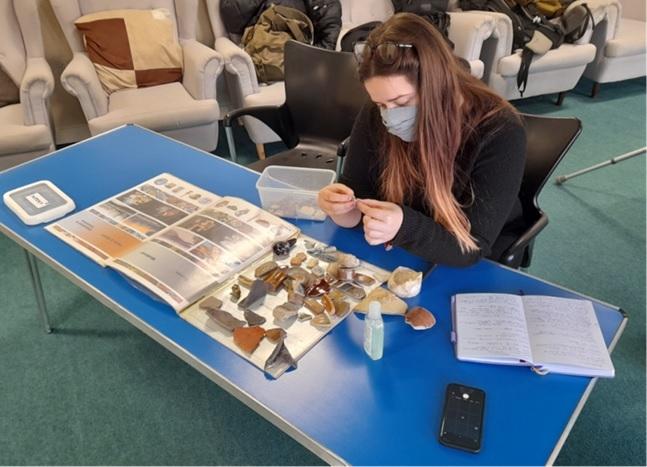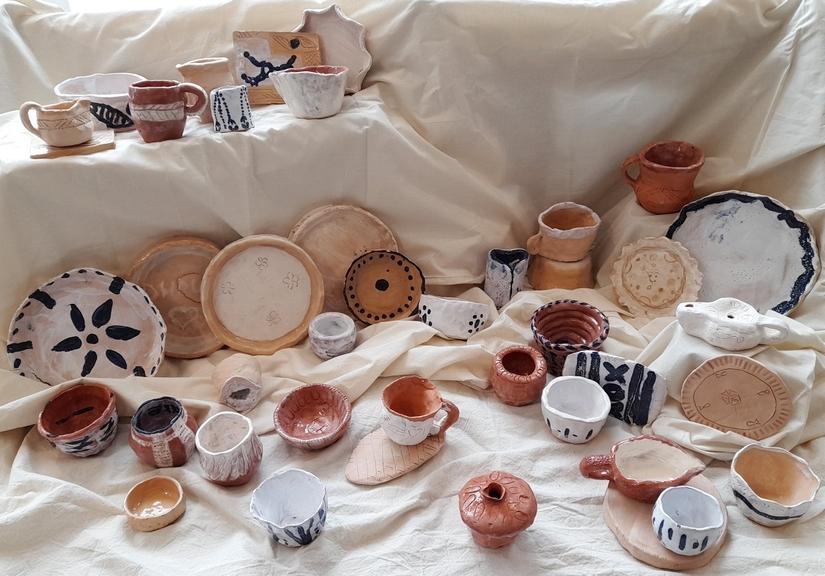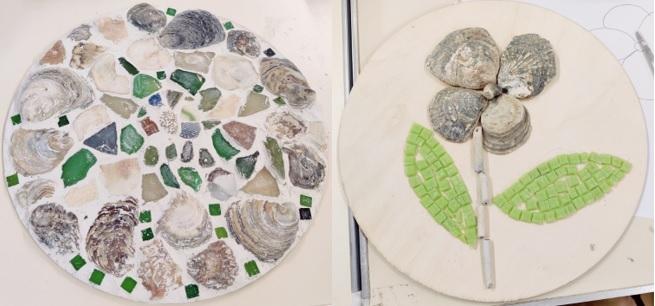Thames Discovery Programme and Mental Health
To celebrate Mental Health Awareness Week, I’d like to take the opportunity to talk about some of the work that I’ve been doing at Thames Discovery Programme.
At TDP we’re passionate about the mental well-being benefits of foreshore archaeology.
We’re just coming to the end of a two-year (extended due to the pandemic) project with a focus on mental health, especially of older Londoners, which was funded by the City Bridge Trust. The pandemic set back plans for programmes of activities but as restrictions were eased we conducted guided walks with Mind Hammersmith, Fullham, Ealing, and Hounslow and were also able to set up two courses of workshops aimed at supporting mental well-being: The first was a pottery project with Mind in Camden and the second a mosaic making workshop with Age UK City of London.

Pottery
The pottery project was facilitated by Ewelina of the Clayground Collective. Participants learned about different types of historic pottery with a sorting exercise. This was followed by a visit to the Museum of London to see complete examples before moving onto the foreshore to look at the archaeology there and directly handle fragments of London’s past.
In mid-February work on the participant’s own pots began at the Living Centre near St Pancras. Over four weeks ceramic techniques including hand-building of pinch pots and coil pots, slip coating, sgraffito (scratching through the different coloured slip) and glazes were introduced. A magnificent array of pots was produced.

Evaluation reports from the people participating in this project were overwhelmingly positive. Assessments using the Warwick Edinburgh mental well-being scale showed substantial improvements in mental health for two participants, minor improvements for two more, no change for one and a slight deterioration for two. However, even those whose numerical data showed poorer mental health at the end of the project claimed the project had helped them.
For example one said “feeling good that I have learned [a] new skill”. Other participants said “It helped socialise and connect with others” “It’s made me feel useful and gave me something to engage in and give me something to look forward to” and “It helps give me bit of order and routine back in my life around others who struggle like me”.
Mosaics
The Mosaic workshop was facilitated by Neesha Badhan and took place at Artizan Street Library with members of Age UK City of London. Participants visited the foreshore and, by special permission of the Port of London Authority, collected historic pottery and shell to make their mosaics. Over two subsequent sessions they created individual mosaic artworks.

People who participated in these sessions said that they “Made me happy” and “Developed my understanding of things I did not know about”.
We are now applying for funding to carry out more archaeology-based well-being activities in the future and hope to be able to support good mental health and aid recovery from mental health difficulties in the future.